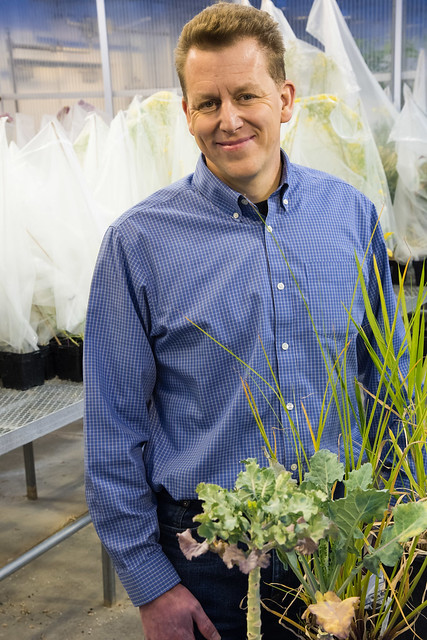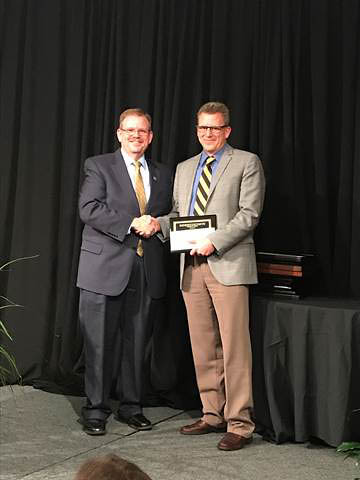
By Samantha Kummerer | Bond LSC
“If you told me when I was an undergrad at Berkley or when I was working at a consulting firm in San Francisco when I was 22 that I would be a professor in Missouri working on broccoli, I would have laughed my ass off,” Bond Life Sciences investigator Chris Pires admitted.
But that work on broccoli has taken him far.
Pires recently received the 2017 Chancellor’s Award for Outstanding Faculty Research and Creative Activity in Biological Sciences.
Pires was also elected as a Fellow of the American Association for the Advancement of Science. The honor places Pires alongside other AAAS fellows including Thomas Edison and Margaret Mead as well as some of the most productive faculty members at MU.
The awards add to a long list of honors received over the years ranging from Thomas Reuters’ Highly Cited Researcher to MU Outstanding Research Mentor.
Despite being no stranger to awards, his impact still surprises him.
“For me what’s nice is people who I’ve had some impact on in the past say things,” he said smiling.
Both recent distinctions cite his contributions to plant evolution and sequencing of genomes and their impact towards improving crops and understanding biodiversity.

While his work on polyploidy and hybridization on plants is internationally renowned and even earned a shout out on the television show “The Big Bang Theory”, the findings go right over the average person’s head.
So, instead, he compares his research to dogs.
Golden Retrievers and Chihuahuas don’t look alike but both are dogs. This is the same for broccoli, kale and cabbage — they are all are apart of the same genus of plants, Brassica.
Pires said he started using that analogy after years of getting the conversation wrong.
One of Pire’s passions is communicating the research he does, including clearing up misconceptions surrounding scientists and professors.
Some days he compares his lab and 80-hour workweek to the life of a small business owner running a multi-million dollar business. Other days it’s a football coach.
“I do all those things, you just don’t know it. I train people, I hire people, I fire people, I do communication, I spend a lot of times applying for grants, I give talks,” he said comparing duties of a coach to his everyday life.
He is also a talent scout.
Pires travels the world and visits MU undergraduate research fairs searching for students passionate about making a difference and are able to answer a simple question: Why?
“They just have to have an answer,” he said. “What I don’t want is the students where it’s just the next step in life.”
The passionate and devoted teams he builds pays off.
He has put out more than 140 publications during his career, 11 in 2017.
His success he attributes back to team science.
“I’m being recognized for stuff my lab does and all the people I collaborate with, so I’m happy to be acknowledged for the achievements of our group,” Pires said.
As the researcher looks on to his future at the university he said he hopes to transition from mentoring undergraduates to mentoring faculty and post-doctoral students.
Pires also wants to be a part of helping to foster cross-discipline research teams both inside Bond LSC and across campus.
While it’s not where he expected to he’d be, it’s where he found his passion. Now he is committed to helping his students get their dream job even if it changes along the way.
“A good day is when I go into the lab and I feel like I’m impacting the six or seven people in my lab but when you realize your impact has maybe been bigger than you realize, that’s nice because you just don’t know,” Pires said.
Chris Pires is a Bond Life Sciences’ Investigator and Biological Sciences professor at the University of Missouri. He is also a member of the Interdisciplinary Plant Group and MU Informatics Institute. He received his bachelors in biology at the University of California, Berkeley and his Ph. D. in Botany from the University of Wisconsin.

